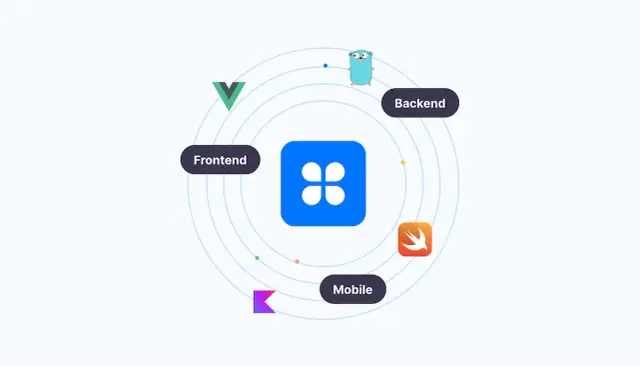The Role of AI in Software Testing
Explore the growing role of artificial intelligence in software testing, including machine learning, analytics, and more. Discover the trends, challenges, and the future of AI-enhanced testing.

The State of Software Testing Today
In today's hyperconnected world, software testing plays a critical role in ensuring the quality, reliability, security, and performance of applications. As the complexity of software systems has grown, so have the challenges in testing them thoroughly. Conventional software testing methods typically involve the manual writing of test cases, execution of tests, and reviewing results. This process can be time-consuming, resource-intensive, and prone to errors.
Moreover, there is a growing need for continuous testing, as Agile methodologies and DevOps practices become more prevalent in software development. These approaches emphasize frequent iteration and rapid delivery, which can put additional strain on testing processes and teams. To minimize the risks involved in delivering software too quickly, organizations must seek out methods and tools that can help streamline the testing process while maintaining high levels of quality. This is where artificial intelligence (AI) steps in, offering the potential to revolutionize software testing by automating various aspects of the process and providing intelligent insights to support data-driven decisions.
How AI is Revolutionizing Software Testing
Artificial intelligence has made significant strides in recent years, thanks to advancements in machine learning, big data, and powerful computing resources. These innovations have laid the groundwork for AI to transform software testing in several ways:
- Test Automation: By automating repetitive and time-consuming testing tasks, AI significantly reduces the manual effort required for test case generation, execution, and result analysis. This frees up testers to focus on more complex and creative tasks, such as devising tests for new functionality and addressing critical problem areas. For example, AI-powered testing tools can intelligently identify elements on a web page and generate functional and UI tests without the need for human intervention. These tests can then be executed automatically, allowing teams to ensure that applications are constantly tested and assessed throughout the development life cycle.
- Intelligent Test Case Generation: AI-enabled test case generation leverages machine learning algorithms to analyze historical test data and uncover patterns. This information can then be used to create new test cases that are more effective at identifying defects. As a result, test teams can better prioritize their testing efforts, focusing on areas with the highest risk of failure.
- Defect Prediction: One of the most promising applications of AI in software testing is its ability to predict defects before they occur. By analyzing patterns in code changes, historical defect data, and test results, AI-based prediction models can help identify and prioritize areas of the codebase that are more likely to contain defects. This enables teams to target their testing efforts more effectively and prevent potential issues from reaching end-users.
- Optimized Test Suite Maintenance: Maintaining test suites can be a daunting task, especially when dealing with large and complex applications that evolve over time. AI-powered tools can help in this scenario by analyzing test case effectiveness, identifying redundancies in test suites, and suggesting test case improvements to optimize test coverage. This leads to more maintainable and efficient test suites, ultimately reducing the overall effort required in testing processes.

AI-Driven Tools and Techniques in Software Testing
Various AI-driven tools and techniques are becoming available to support software testing activities. Here are some of the most noteworthy:
Machine Learning-Based Test Automation
Tools like Test.AI and ReTest utilize machine learning algorithms to intelligently adapt to changes in application interfaces and automatically generate new test cases accordingly. These tools simplify test automation by significantly reducing the maintenance effort required for dynamic applications.
Natural Language Processing (NLP)
NLP capabilities can be employed to understand and process natural language test cases, specifications, and requirements. AI-driven NLP tools can be used to convert human-readable test scenarios into automated test scripts, enabling faster test case development and better collaboration between testers, developers, and business stakeholders.
Visual Testing
AI-driven visual testing tools, such as Applitools, leverage computer vision algorithms to analyze and compare applications' visual aspects. These tools can automatically detect visual discrepancies, ensuring that the layout, design, and aesthetics of an application are consistent across various devices, platforms, and browsers.
Anomaly Detection
AI-driven anomaly detection tools analyze large amounts of test data to identify unusual patterns and trends. By pinpointing potential issues and areas of concern, these tools provide invaluable insights that can aid testers in selectively focusing their efforts on high-risk areas.
The potential for AI to revolutionize software testing is immense. As more organizations embrace AI-driven testing methodologies, the overall efficiency and effectiveness of testing processes will continue to improve. This will ultimately lead to more reliable, high-quality, and innovative applications in the marketplace.
Integrating AI into Your Testing Workflow with AppMaster
As AI becomes an integral part of software testing, it is essential to use platforms that support and enable the seamless integration of AI-based testing solutions into your workflow. AppMaster is one such powerful no-code platform designed to improve the process of building and testing web, mobile, and backend applications.
AppMaster supports the integration of AI-driven tools and techniques into your testing workflow, allowing you to take advantage of the benefits AI has to offer while reducing the time, effort, and resources required for traditional software testing.

Here are some AI-related features you can leverage with the AppMaster platform:
- Codeless testing automation: AppMaster provides a comprehensive environment that allows you to create automated tests without needing to write code. AI-powered algorithms can be used to optimize test scripts and scenarios, intelligently identifying and prioritizing test cases based on historical data.
- Smart test generation: AppMaster uses machine learning algorithms to analyze your application's behavior and generate test cases automatically. This significantly reduces the time and effort required to create and maintain test suites, ensuring that your application's quality remains consistently high.
- Intelligent test execution: AppMaster's AI-driven test execution engine can automatically distribute test cases among available testing resources while taking into account factors such as test priority and resource utilization. This optimization results in faster test execution and better resource management.
- Automated defect prediction and analysis: AppMaster incorporates AI-powered analytics to identify and predict defects in your applications. By analyzing historical data and identifying patterns, AI can predict which areas of your application are more susceptible to defects and help you proactively address them.
- Integration with AI-powered monitoring tools: You can connect AppMaster to various AI-based application monitoring tools to gain valuable insights into your applications' performance and behavior. This information can be used to inform your test strategies and fine-tune the quality of your applications.
By integrating AI into your testing workflow with AppMaster, you can leverage cutting-edge technologies to transform your software testing processes, achieve higher-quality applications, and stay ahead of the competition.
The Challenges of Implementing AI in Software Testing
Despite the numerous benefits of using AI in software testing, several challenges may arise during its implementation. To successfully integrate AI into your software testing process, it is essential to address these challenges and mitigate potential risks. Some of the common challenges include:
- Data quality and availability: AI algorithms require high-quality and abundant data to function effectively. Insufficient or poor-quality data can negatively impact the accuracy and reliability of AI-driven testing solutions. Ensuring the availability of high-quality data and establishing proper data management practices are crucial for the success of AI in software testing.
- Complexity and resource management: Implementing AI in software testing can be complex, especially when it comes to understanding the intricacies of machine learning algorithms and their application to specific testing scenarios. Additionally, coordinating AI-driven test execution and managing resources might be challenging for teams not experienced with AI-powered tools.
- Lack of skilled personnel: The effective implementation of AI in software testing requires skilled professionals with expertise in AI, machine learning, and software testing best practices. The scarcity of such talent and the steep learning curve associated with AI may pose challenges in integrating AI into your testing process.
- Resistance to change: As with any new technology, adopting AI in software testing might face resistance from stakeholders and testers accustomed to traditional testing methodologies. Overcoming resistance and promoting organizational change may be necessary to ensure the successful implementation of AI-driven testing solutions.
- Ethical considerations: AI-driven testing solutions might inadvertently introduce biases or ethical concerns, depending on the data used to train the algorithms. It is essential to carefully consider any potential ethical implications when using AI to test your applications.
While these challenges might seem daunting, they can be mitigated through proper planning, change management, adequate investment in training and skills development, and the right choice of tools and platforms. Platforms like AppMaster can help you integrate AI into your testing workflow seamlessly and efficiently, making AI-driven software testing a powerful asset for your organization.
The Future of AI in Software Testing
As AI continues to advance and becomes more sophisticated, its role in software testing is bound to expand and transform the testing sphere. Some possible trends and developments in AI-driven software testing include:
- More widespread adoption: As the benefits of AI in software testing are increasingly recognized, organizations of all sizes are likely to adopt AI-driven testing solutions to enhance their quality assurance processes and achieve more reliable and efficient application releases.
- Improved AI algorithms: Continuous research in AI and machine learning will result in more advanced and refined algorithms, enabling even greater levels of automation, prediction, and analysis in software testing. These improvements will help organizations achieve better quality applications while reducing the time and effort required for software testing.
- New AI-driven testing tools and platforms: The growing interest in AI for software testing will pave the way for the development of new tools, platforms, and frameworks designed to leverage AI's power in various testing activities. This will further expand the capabilities of AI-driven testing solutions and make them more accessible to a broader range of organizations.
- Integration with other emerging technologies: AI-driven software testing is likely to benefit from the integration of other emerging technologies, such as IoT, blockchain, and augmented reality, resulting in richer testing environments and more comprehensive test coverage.
- Increased emphasis on ethical AI: As AI's role in software testing grows, more consideration will be given to ethical implications, biases, and potential consequences of AI-driven testing solutions. Organizations and professionals will need to apply strict ethical guidelines and ensure the responsible use of AI in all aspects of software testing.
The adoption of AI in software testing is an exciting and transformative development that is set to bring numerous benefits to the world of software development and quality assurance. By staying informed about these trends and challenges and embracing AI-powered testing tools and platforms like AppMaster.io, you can take advantage of the full potential of AI in your software testing processes and ensure the delivery of high-quality applications in an increasingly competitive market.
FAQ
AI plays a crucial role in software testing by automating various testing activities, accelerating the testing process, and enhancing test coverage. It enables intelligent test case generation, anomaly detection, and predictive analysis to identify defects and improve software quality.
Yes, AI algorithms can analyze patterns and detect anomalies in software behavior. By continuously monitoring system metrics, user interactions, and log files, AI-based anomaly detection techniques can identify unexpected behaviors, potential bugs, or performance issues, allowing testers to take appropriate actions.
AI can automate the execution of test cases by utilizing intelligent bots or virtual agents. It can analyze vast amounts of test data, identify patterns, and provide insights into the effectiveness of tests. AI also helps in prioritizing test cases, optimizing test coverage, and identifying areas where further testing is needed.
The benefits of AI in software testing include improved test coverage, accelerated testing cycles, early defect detection, reduced manual effort, increased efficiency, enhanced software quality, and better utilization of resources. AI empowers testers to deliver high-quality software in a shorter time frame.
No-code platforms like AppMaster.io simplify the process of creating test cases and test scenarios by offering intuitive drag-and-drop interfaces. By integrating AI capabilities into these platforms, testers can utilize AI algorithms for intelligent test case generation, predictive analysis, and anomaly detection. This combination enhances the efficiency and effectiveness of software testing, reducing the reliance on manual effort.
To embrace AI in software testing, organizations can start by identifying areas where AI can bring the most value, such as test case generation, anomaly detection, or predictive analysis. They can invest in AI tools, infrastructure, and training, and gradually integrate AI into their existing testing processes.
The future of AI in software testing looks promising. Advancements in AI and machine learning will continue to enable more sophisticated test automation, intelligent bug detection, and enhanced test analysis. AI-driven testing frameworks will become more prevalent, ultimately transforming how software is tested and ensuring higher quality software releases.





